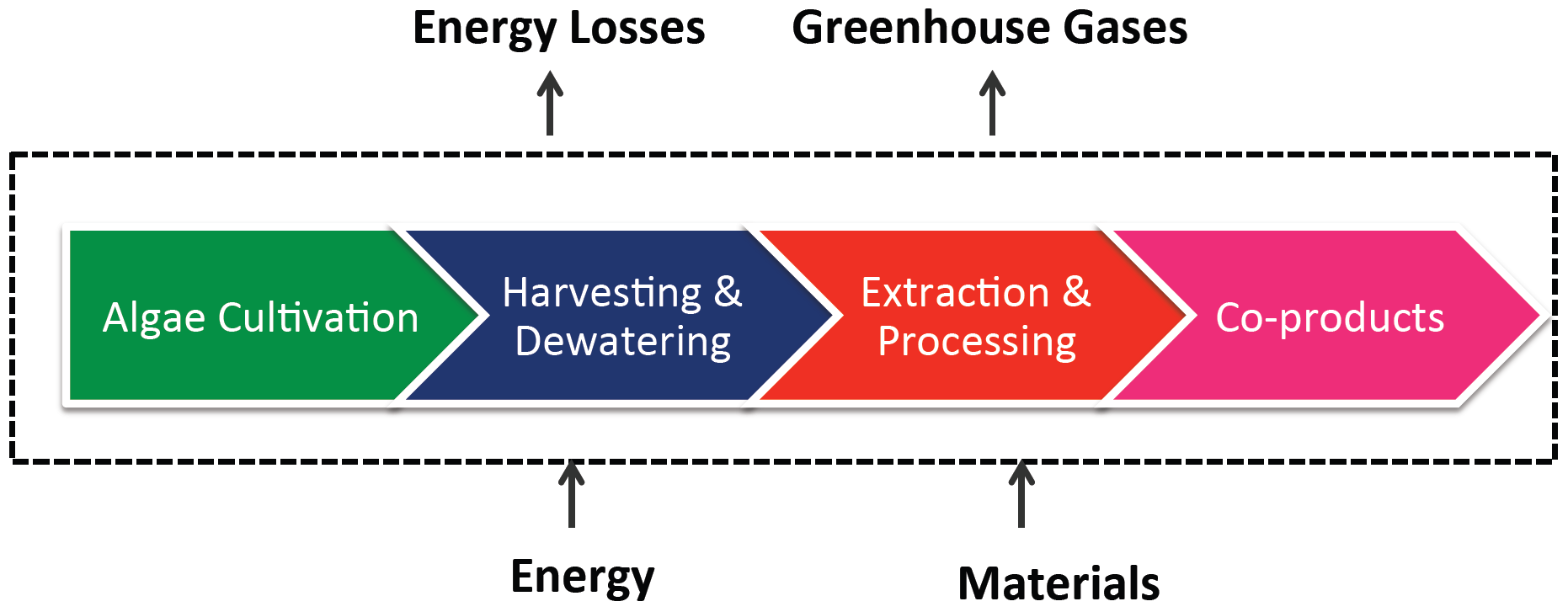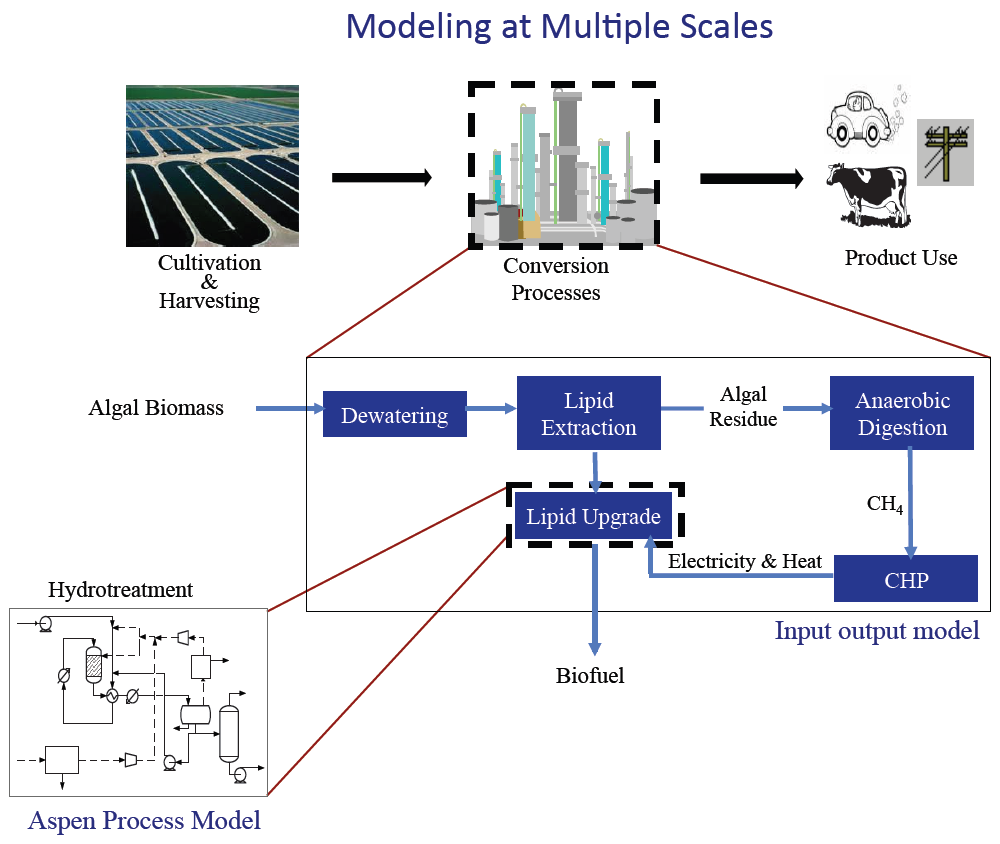Quantifying Uncertainty in LCA of Algal Biofuels
Researcher: Deborah Sills, Andre Chabaneix, Tal Akabas
Principal Investigator: Professor Jefferson Tester, Professor Charles Greene
Despite algae's potentialas a sustainable feedstock for renewable liquid transportation fuels, it is still not clear if biofuels can be produced from microalgae in an energetically and economically viable manner. Numerous studies that used Life Cycle Assessment (LCA) to model energy balances and greenhouse (GHG) emissions associated with algal biofuelshave been published recently, yet there is no consensus among the results of these studies. Additionally, the vast majority of previous studies presented results as single values, ignoring inherent uncertainties in input parameters and processes.
We constructed an LCA model of algal biofuel that is divided into five major process modules: (1) cultivation, (2) harvesting, (3) lipid extraction, (4) biofuel production, and (5) co-product management.
Multiple scenarios were modeled for each process module individually to determine a best-case scenario, after which energy balances and GHG emissions were quantified for the entire biofuel production train. This modeling strategy allowed us to identify processes associated with high-energy consumption that should be focused on in future research.Since there is no industrial scale algae biofuel production facility, many parameters and processes included in the LCA are uncertain. We incorporated these uncertainties in the model using Monte Carlo Simulations, and thus results were represented within confidence intervals. Presenting expected energy balances and GHG emissions as a range will allow stakeholders to make decisions based on information that is more realistic than single deterministic values.
Model results indicate that algal biofuels may yield favorable energy balances and GHG emissions, but not with current technologies. Wet oil-extraction processes (e.g. hydrothermal processes) should be developed, and co-products (e.g. methane from aneaerobic digestion of biomass residues remaining after oil extraction) need to be utilized for algal biofuels to be produced in a sustainable manner.


